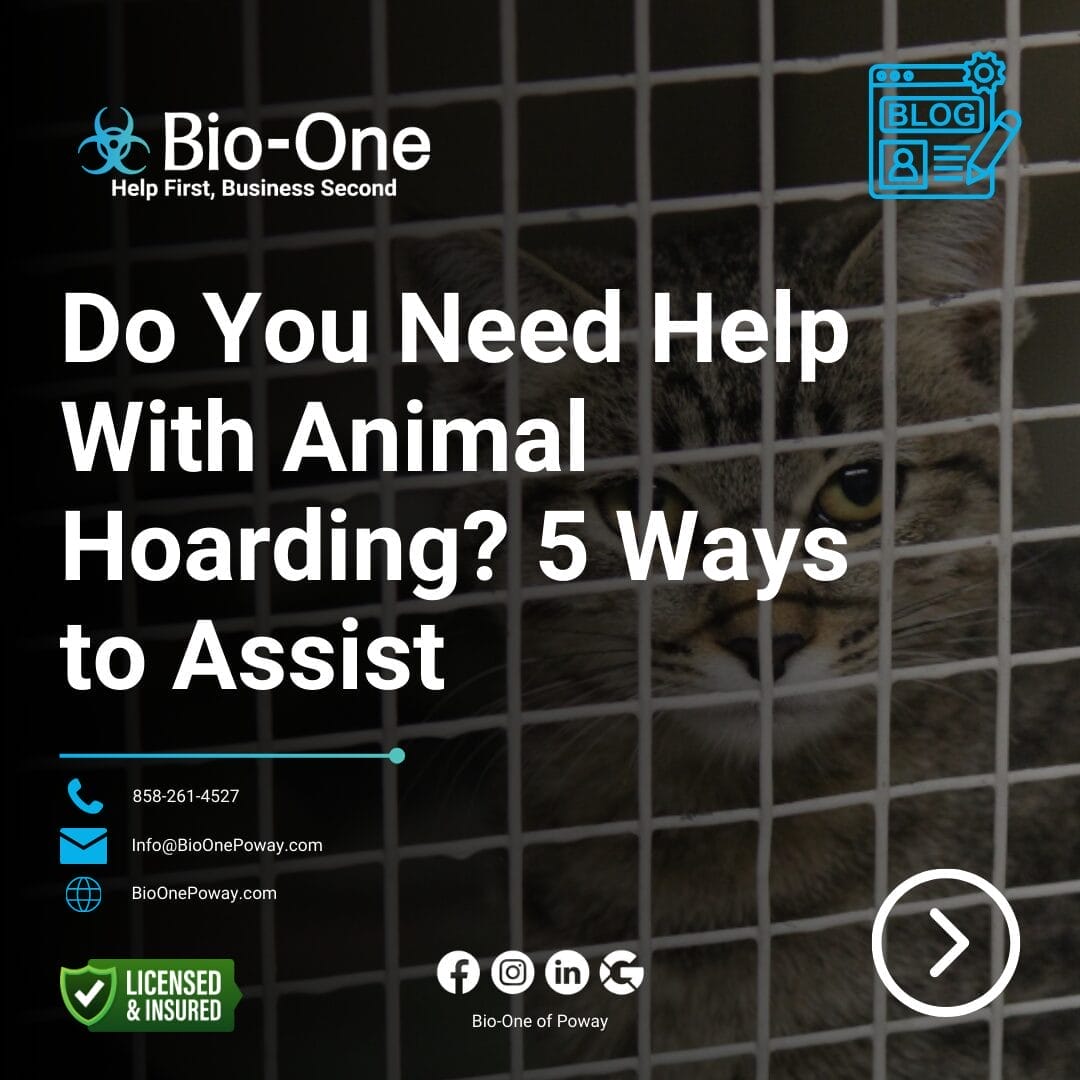
If you’re an organization or individual looking to tackle this problem, read on to discover the most effective strategies for addressing animal hoarding.
Disclaimer: It's important to note that each animal hoarding scenario is unique and may require a different approach. When animals and individuals are in danger, it is essential to contact professional organizations for help. These include local animal welfare organizations, authorities who can intervene in cases of neglect or abuse, and a biohazard cleanup company to safely deal with the aftermath.
Animal hoarding is more than just a messy home with pets; it derives from a mental health disorder where individuals amass a large number of animals, often beyond their means to care for them properly. These animals are kept in overcrowded and unsanitary conditions without adequate food, water, veterinary care, or socialization.
The hoarding behavior often stems from a deep emotional attachment to the animals and can be influenced by various factors, such as trauma, depression, or feelings of loneliness.
Unfortunately, the hoarder's well-intentioned but misguided care can lead to neglect and suffering for the animals. Common signs of animal hoarding include overwhelming numbers of animals, unsanitary living conditions, refusal to acknowledge the severity of the situation, and frequent acquisition of more animals despite neglecting the ones already in their care.
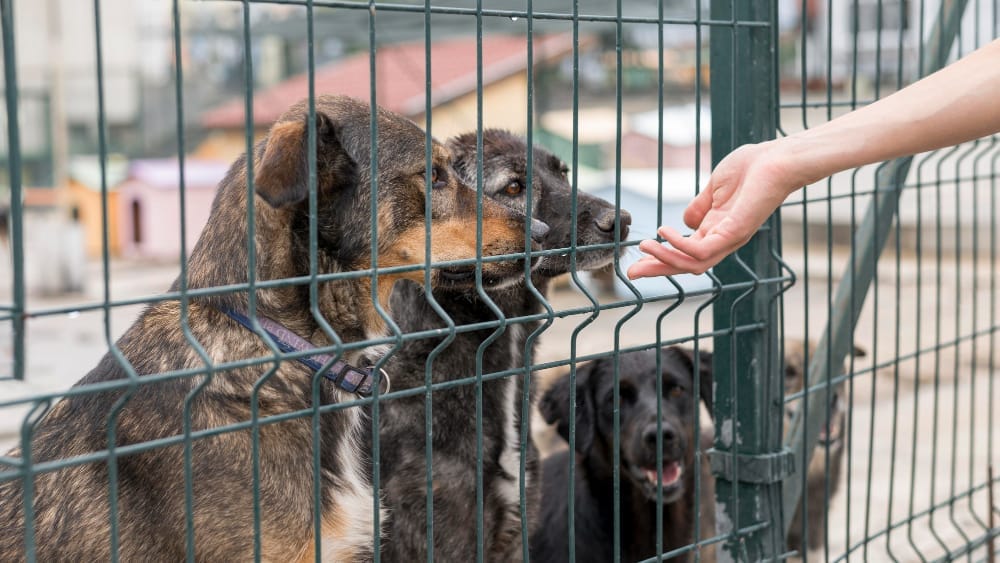
Raising awareness about animal hoarding is the first step in addressing the issue. It is vital to educate the public, and professionals in healthcare, social services, and animal welfare, about the signs of hoarding and the best practices for intervention.
Collaborating with local animal welfare organizations can provide a solid foundation for addressing cases of animal hoarding. These organizations often handle the complexities of removing animals from hoarding situations safely and humanely.
Interventions should be designed to address the hoarder's mental health needs while ensuring the welfare of the animals. Mental health professionals can work with hoarders to provide therapy and support, addressing the root causes of their hoarding behavior and helping them develop healthier relationships with animals.

Support groups for hoarders, similar to those for addiction recovery, can also be beneficial. These groups offer a sense of community and understanding, which can be essential for individuals working to overcome their hoarding tendencies. It's important to approach hoarders with empathy and non-judgment. Shaming or blaming hoarders can be counterproductive and may lead to further isolation and resistance to intervention.
Animal welfare laws vary by state and local jurisdiction, so it's critical to work within the legal framework to protect the animals and assist the individual.
In some cases, seeking a court order to remove animals from the hoarder's care may be necessary. Legal intervention should be used as a last resort, with every effort made to support the hoarder and encourage voluntary compliance with animal welfare standards.
Long-term recovery and follow-up are crucial to prevent recidivism and ensure the health and safety of both hoarders and animals. Develop a plan with clear, manageable steps for the hoarder to follow, with regular check-ins and support to help them maintain a healthy environment.

Follow-up care should be provided for the animals as well. Animal welfare organizations and volunteers can play a significant role in providing ongoing support for the animals by fostering, socializing, and eventually rehoming them in environments where they can thrive.
It's a challenging and sensitive issue, but with the right strategies and collective effort, we can offer hope, support, and a path to recovery for those struggling with animal hoarding. Remember, it takes a village to tackle hoarding, and every individual or organization has a role to play in helping those in need.
If your community is dealing with an animal hoarding situation, remember that you're not alone. Local support networks and professional services. Our ultimate goal is to create a landscape of care where both animals and people can prosper. Contact our team for a free consultation in the San Diego County area.
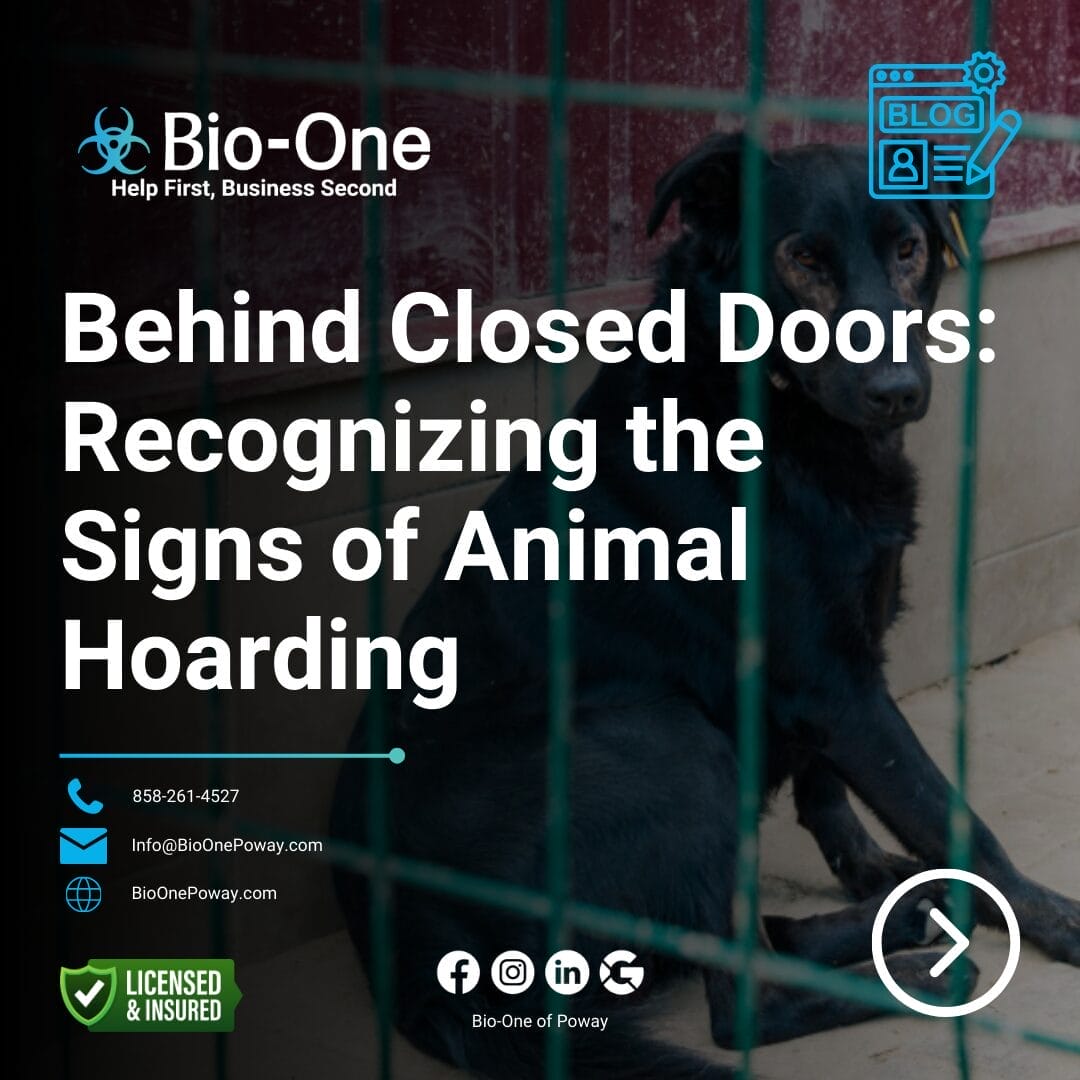
Animal hoarding affects not only the animals but also the human hoarder and their community. It's important to recognize the warning signs of animal hoarding and seek professional help to address both human and animal issues. Let's get straight to the point and discuss the dangers of animal hoarding and how to recognize the signs.
Know that these scenarios require professional assistance from welfare organizations, a mental health professional, and a hoarding cleanup company to successfully resolve the situation, and our team at Bio-One of Poway can take of everything for you or your loved one.
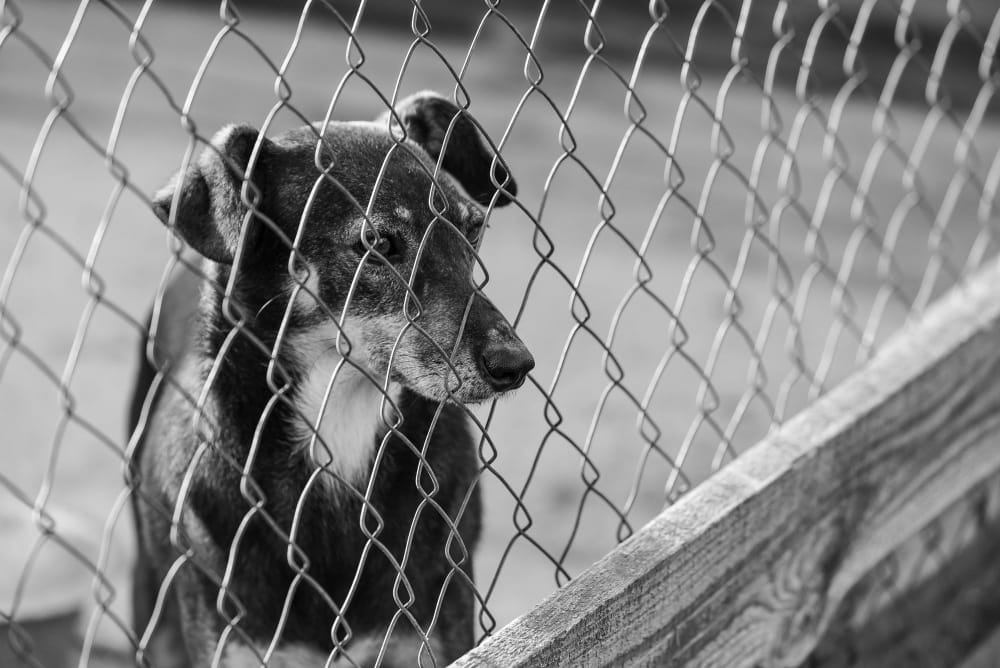
Animal hoarding is a complex and severe form of animal abuse. The Animal Legal Defense Fund defines it as "having more than the typical number of companion animals, which causes or threatens harm to the animal's health or welfare." It's not just about having too many pets; it also involves neglect, unsanitary living conditions, and a lack of proper care for the animals. This behavior often stems from underlying psychological issues such as depression, anxiety, or OCD.
There are some warning signs that you can look out for if you suspect someone might be an animal hoarder. These include:
Animal hoarding can have serious consequences, both for the animals and the hoarders themselves. Hoarders may suffer from psychological problems, and they may also be at risk of physical harm if the living conditions become too unsanitary. The animals themselves may suffer from malnutrition, disease, and neglect.
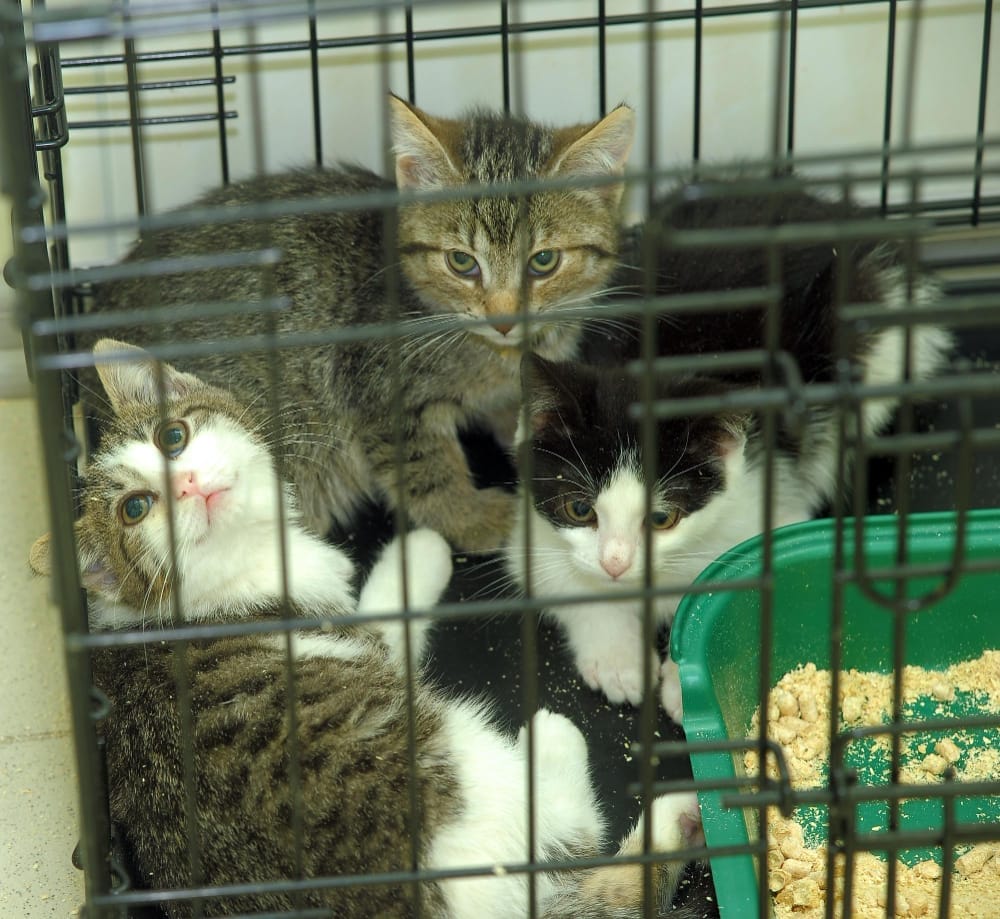
Many animal hoarders start with good intentions, believing that they are rescuing animals from neglect or abuse. However, as the number of animals increases and their care becomes overwhelming, these individuals become unable to provide proper care for the animals.
Animal hoarding is often a result of underlying psychological issues that require professional treatment. It's important to address these root causes to prevent the hoarding behavior from continuing.
If you suspect someone might be an animal hoarder, take action immediately. Here are some situations where authorities should be contacted:
Authorities must be contacted promptly, as animal hoarding can quickly escalate and cause severe harm to both humans and animals.
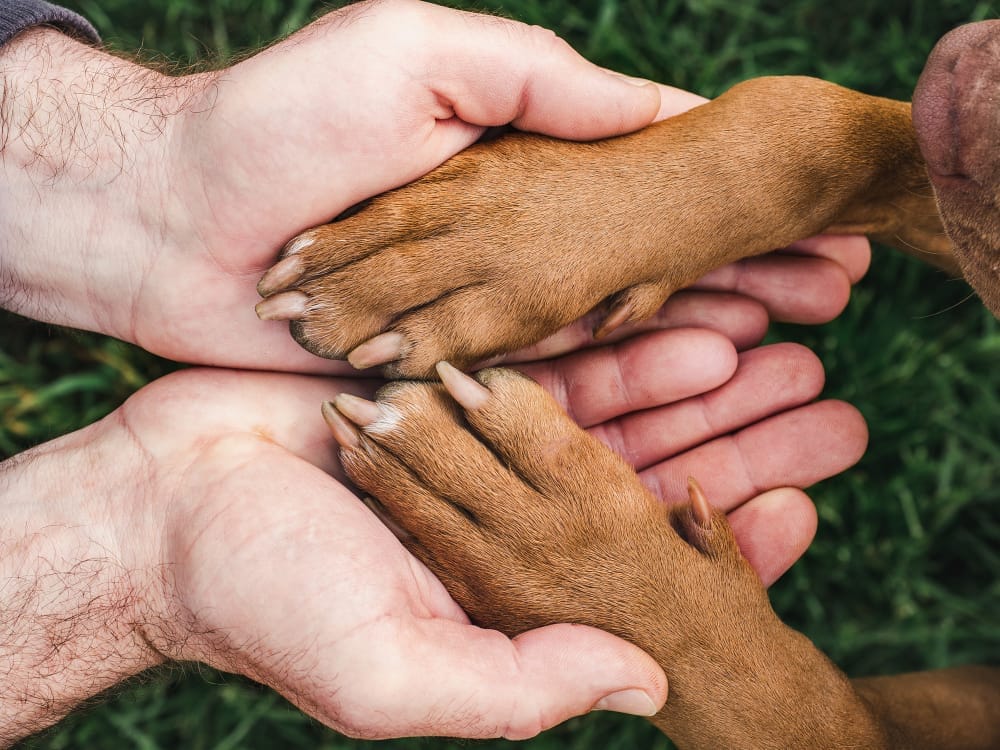
If you suspect someone is an animal hoarder, professional help is the best way to approach the situation. Animal welfare organizations, such as the ASPCA, can provide resources and support for both the animals and the hoarder. Hoarding cases often require extensive cleanup, and professionals will need to be brought in to address health and safety concerns.
Animal control agencies mental health professionals, and animal welfare organizations can all play a role in addressing animal hoarding cases, helping to find a resolution that benefits everyone involved.
Recognizing the warning signs of animal hoarding and seeking professional help is crucial in addressing the problem and ensuring the safety and well-being of all involved. If you suspect someone might be an animal hoarder, don't hesitate to reach out for help. Bio-One of Poway is dedicated to helping those struggling with hoarding and other difficult situations, providing compassionate and discreet cleanup services. Visit our website or contact us directly to know how we can intervene.